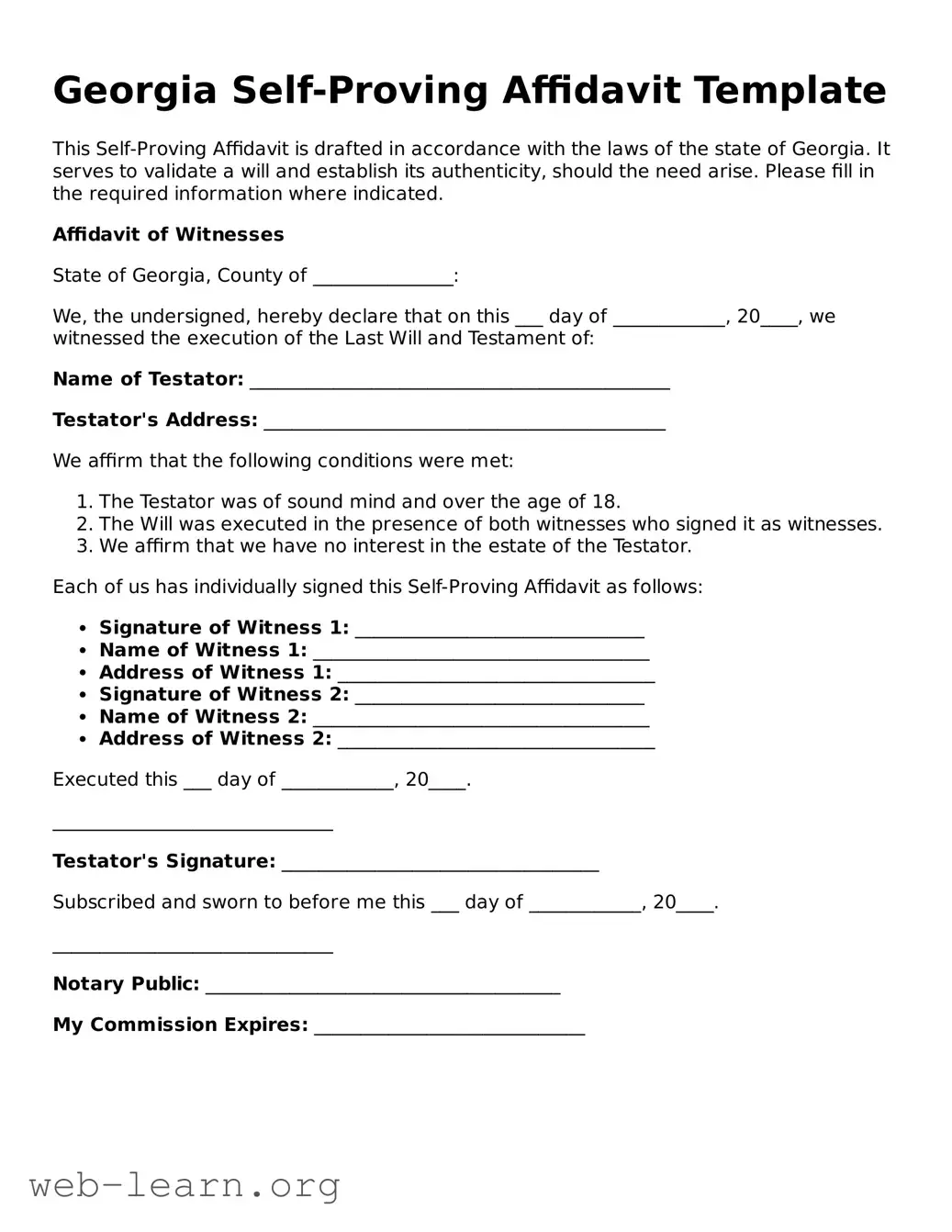Georgia Self-Proving Affidavit Template
This Self-Proving Affidavit is drafted in accordance with the laws of the state of Georgia. It serves to validate a will and establish its authenticity, should the need arise. Please fill in the required information where indicated.
Affidavit of Witnesses
State of Georgia, County of _______________:
We, the undersigned, hereby declare that on this ___ day of ____________, 20____, we witnessed the execution of the Last Will and Testament of:
Name of Testator: _____________________________________________
Testator's Address: ___________________________________________
We affirm that the following conditions were met:
- The Testator was of sound mind and over the age of 18.
- The Will was executed in the presence of both witnesses who signed it as witnesses.
- We affirm that we have no interest in the estate of the Testator.
Each of us has individually signed this Self-Proving Affidavit as follows:
- Signature of Witness 1: _______________________________
- Name of Witness 1: ____________________________________
- Address of Witness 1: __________________________________
- Signature of Witness 2: _______________________________
- Name of Witness 2: ____________________________________
- Address of Witness 2: __________________________________
Executed this ___ day of ____________, 20____.
______________________________
Testator's Signature: __________________________________
Subscribed and sworn to before me this ___ day of ____________, 20____.
______________________________
Notary Public: ______________________________________
My Commission Expires: _____________________________
